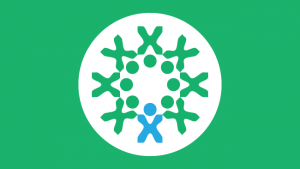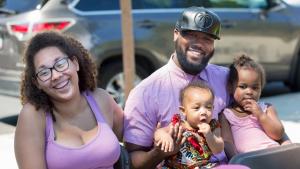Shamekka Peterson doesn’t have an easy job.
As a receptionist at the downtown Portland office of the Department of County Human Services she greets clients with mental health and hygiene issues, folks struggling with homelessness or people who are just plain angry.
“You may overlook how much she does for the human spirit,” her co-worker Sonja Hendrix told commissioners Thursday as the board proclaimed February Black History (and future) Month in Multnomah County.
After all, receptionists are rarely recognized for their work. But they are often the staff who keep a place afloat; and the team at the Lincoln building is no different.
Peterson also has a special gift that settles a person and forces a person to smile on even the most harried of days. She welcomes clients - often by name - with kind patience and the bright smile of a dear friend.
“Imagine being on the receiving end of that kind of treatment,” Hendrix said, especially for a person who might rarely be treated with dignity. “She is professional, kind-hearted, intelligent, thoughtful, funny, social, analytical, diplomatic, supportive and optimistic.”
Peterson was one of many county employees honored at this year’s proclamation.

Commissioner Loretta Smith, who brought forward the proclamation, said Black History Month is certainly a time to reflect on a past of prejudice and inequality, and those who fought for change. But it can also be a time to recognize people who fight today, to change tomorrow.
“We all own this history,” she said, “and we share the responsibility in changing its course.”
Many county employees carry out that responsibility with little fanfare.
Javelin Hardy, a parole and probation officer and chair of the Multnomah County Employees of Color Employee Resource Group, recognized the work of her fellow parole and probation officers Carl Green, Nathaniel Roberts, Travis Gamble and Keith Murphy.
Mohammad Bader, a director of the Developmental Disabilities Services Division, called out Sherrelle Jackson, a program manager in the division. She works with “care and compassion,” he said. He said perhaps the best example of her character was when she decided to become a social worker. She asked what she would need to do; Bader told her she would need a master’s degree.
And so she earned one; and mentored her fellow students along the way. Today she trains aspiring social workers and new lawyers who might work with clients with developmental disabilities.
Rachael Banks, a manager with the Health Department’s Healthy Birth Initiative, said Alesha Johnson, an office assistant, “is really the glue that holds everything together.”
She’s calm, even as she navigates a deluge of requests and upset clients (and sometimes upset staff). “What she’s able to do using her relationship-building skills should be bottled and sold,” Banks said.
Case manager Eleanor Myrick is a wizard behind the scenes, where she shuttles through contracts, overseas program logistics and even organizes an annual holiday party for hundreds of clients.
Ronnie Meyers has fought inequality for 20 years, Banks said. She helps communities and individuals harness their own leadership skills.
And Renee James, a program coordinator helps new parents seamlessly connect to home-visiting care. “Ms. Renee is dedicated, real and completely connected to the community,” Banks said.
Her list could go on; they include case managers Dianne Clay, Jeff Washington, Maya Noble, Sherly Paul, Wynetta Jackson, VaSheeta James, to name just a few.
Ben Duncan, the county’s chief diversity and equity officer felt a swell of emotion as he listened to his colleagues speak. He felt the honor and pride in so much good work -- work that rarely earns applause.
“I have the daily privilege of being in high profile spaces, being thanked for my work towards equity,” he said. “And as much as I'm exhausted some days, my work is the easy work… These are the people who do that hard work.“




